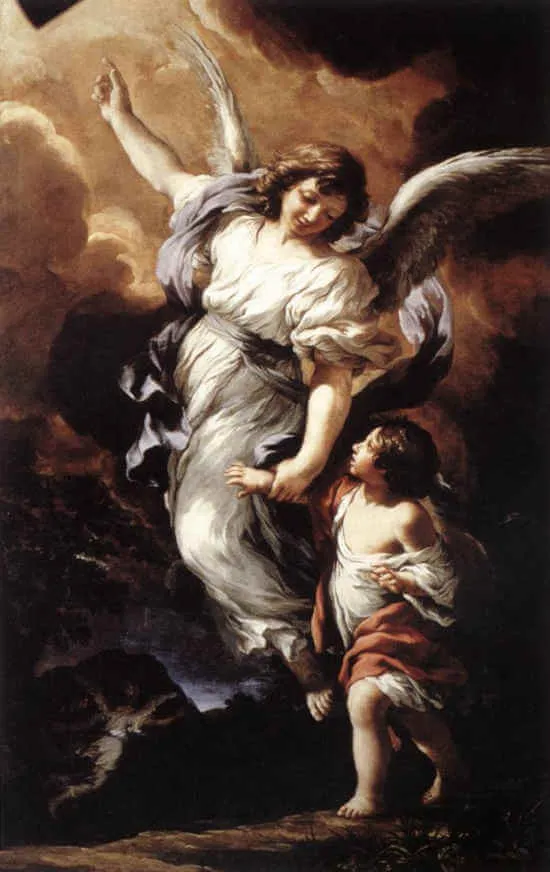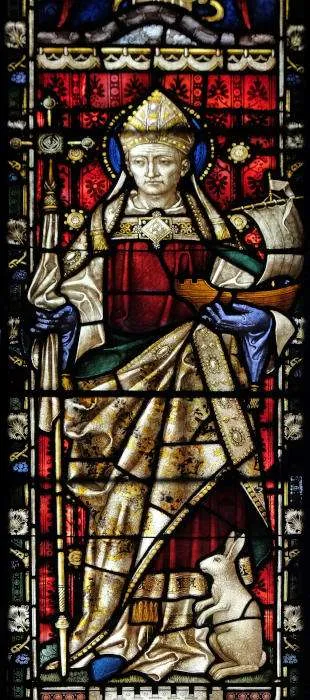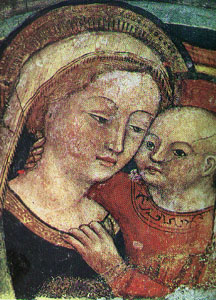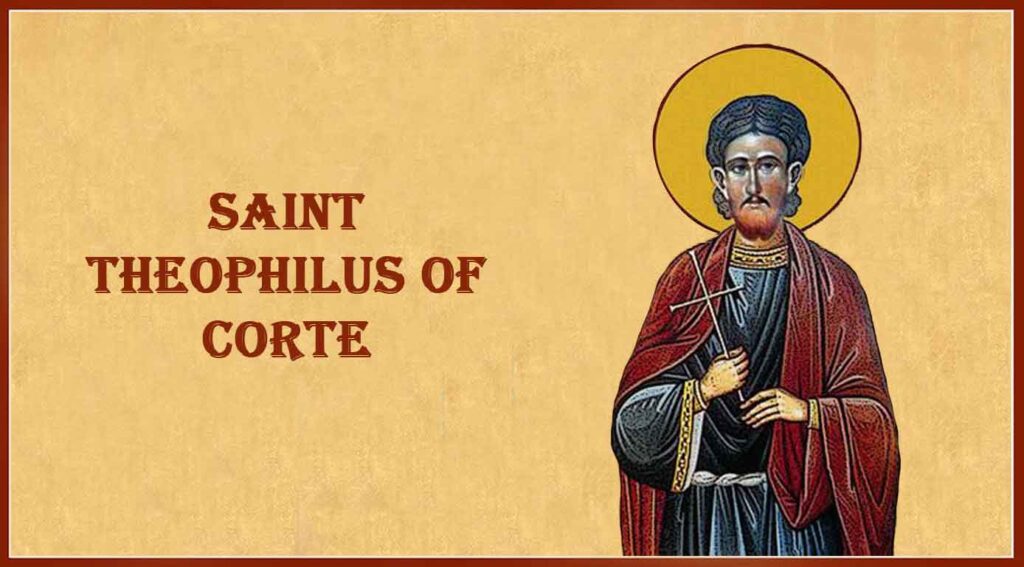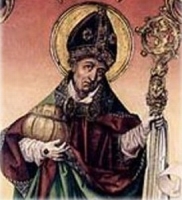“See that you do not despise one of these little ones, for I say to you that their angels in heaven always look upon the face of my heavenly Father” (Matthew 18:10). Jesus speaks these words immediately before He teaches the Parable of the Lost Sheep that shows Jesus’ deep love for each and every person, for each of the “little ones.” Not only does He seek out the lost and straying sheep, He also gives them their own guardian angels, who always look upon the face of God, and whose sole task is to care for us, to get us to Heaven. It is these angelic beings whom we honor today.
The fact that every person is assigned a personal guardian angel is deeply rooted not only in Scripture but also in the writings of the saints and the teachings of the Church. In the Psalms we read, “For he commands his angels with regard to you, to guard you wherever you go. With their hands they shall support you, lest you strike your foot against a stone” (Psalm 91:11–12). Saint Jerome, in commenting on the above-mentioned passage from the Gospel of Matthew, says, “The worth of souls is so great that from birth each one has an angel assigned to him for his protection.” Saint Thomas Aquinas says, “Each man has an angel guardian appointed to him. This rests upon the fact that the guardianship of angels belongs to the execution of Divine providence concerning men” (Summa Theologiae 1.113.2). More recently, Pope Saint John Paul II taught, in a General Audience on August 6, 1986, “God has entrusted to the angels a ministry in favor of people. Therefore the Church confesses her faith in the guardian angels, venerating them in the liturgy with an appropriate feast and recommending recourse to their protection by frequent prayer, as in the invocation “Angel of God.” Finally, the Catechism of the Catholic Church, quoting Saint Basil, says, “Beside each believer stands an angel as protector and shepherd leading him to life” (CCC #336).
Though the reality of guardian angels is often spoken of to children as a comfort to them when they face fears, the guardian angels are for all of us, and we ought not forget about our own. Angels are not only intercessors, they are mediators. This means that God entrusts them with His divine power, to act in His name and on His behalf, to deliver His grace, reveal His Truth, direct us down the right path, and protect us from evil. Though God is fully capable of distributing His grace Himself, it is His will that all He bestows upon us come to us through mediators who are instruments, cooperating with His divine plan.
The memorial that we celebrate today did not become a universal feast until the latter part of the seventeenth century, when Pope Clement X placed it on the Roman Calendar. Pope Leo XIII elevated the feast and emphasized its importance in the late nineteenth century. Around the time he did so, he also composed the “Saint Michael the Archangel” prayer and mandated that it be prayed at the end of every Mass. The feast of the Archangels is celebrated September 29, and a few days later, the memorial for all the guardian angels. These two feasts emphasize the fact that God uses some angels for specific purposes that affect all people and that He uses guardian angels to care for each of our specific needs.
Based upon the Old and New Testaments, the teachings of early Church Fathers, and the detailed teaching of Saint Thomas Aquinas, the Church generally accepts that there is a hierarchy of angels consisting of nine choirs that are further divided into three triads. The first triad consists of the Seraphim, Cherubim, and Thrones. Their duty is exclusively the service of God, worshiping Him continuously. The second triad consists of the Dominions, Virtues, and Powers. These three choirs are tasked with the governance of the created Universe. The third triad consists of the Principalities, Archangels, and Angels. These beings are closest to humanity and act as mediators between God and man. Thus, though Saint Thomas defined the guardian angels as the lowest of the choirs of angels, this should only be understood to mean that their direct concern is the care of humanity. Nonetheless, they continually behold the Beatific Vision.
Regarding the function of the guardian angels, Saint Thomas Aquinas gives the most detail (See Summa Theologiae 1.113). As mentioned, he teaches that every person receives an angel at birth. This means that guardian angels are not tied to baptism but to human activity in this world, specifically human activity that begins at birth. These angels are not recycled, so to speak, but are assigned to one person and one person alone. The guardian angels can act upon our senses and imaginations, inspiring us one way or another. They can put ideas before our minds to direct us toward God’s will, but they cannot control our wills. By working upon our senses, they can cause us to feel what is right or wrong and urge us to make the right choices. They act contrary to the fallen angels, or demons, who tempt us through false reasoning and base sensate delights. Finally, in Heaven, the guardian angel’s role of leading us to salvation will be complete. Saint Thomas believed that even in Heaven they will have the role of communicating with us and will continue to enlighten us with God’s never-ending and deepening Truth.
As we honor the celestial hosts of the guardian angels, ponder your own angel today. Saint Ignatius of Loyola, in the Spiritual Exercises, gave us a detailed map for how they communicate with us. Consider reading his wisdom. In Heaven, we will enjoy an eternal face-to-face relationship with our angels. That relationship will be perfectly steeped in the love of God, and our union with them will be unbreakable. While on earth, we often pay little attention to our angels, but they are forever attentive to us. Though we might not always speak prayerfully to our intercessors and mediators, try to do so. Our angels daily communicate to us. Do you listen? Do you hear? Work to discern your angel’s actions in your life, so that this angelic mission can be better fulfilled. Have confidence that you have a mediator who stands before God and does nothing other than plead on your behalf, continuously working to bring you to eternal salvation.
Source: https://mycatholic.life/saints/saints-of-the-liturgical-year/guardian-angels/


